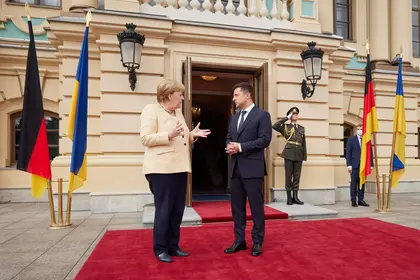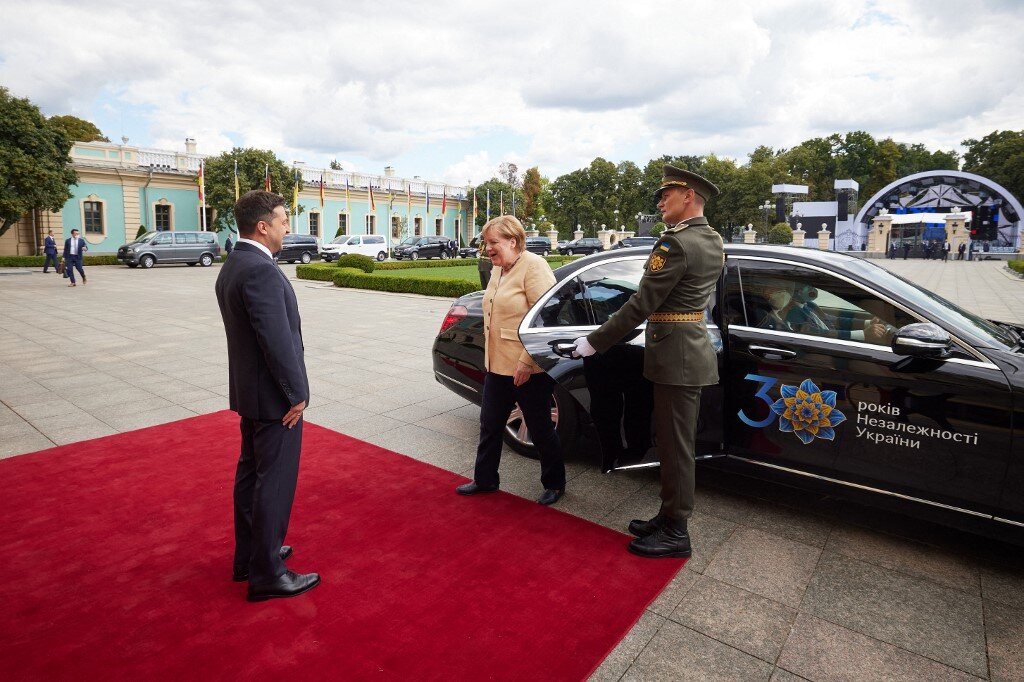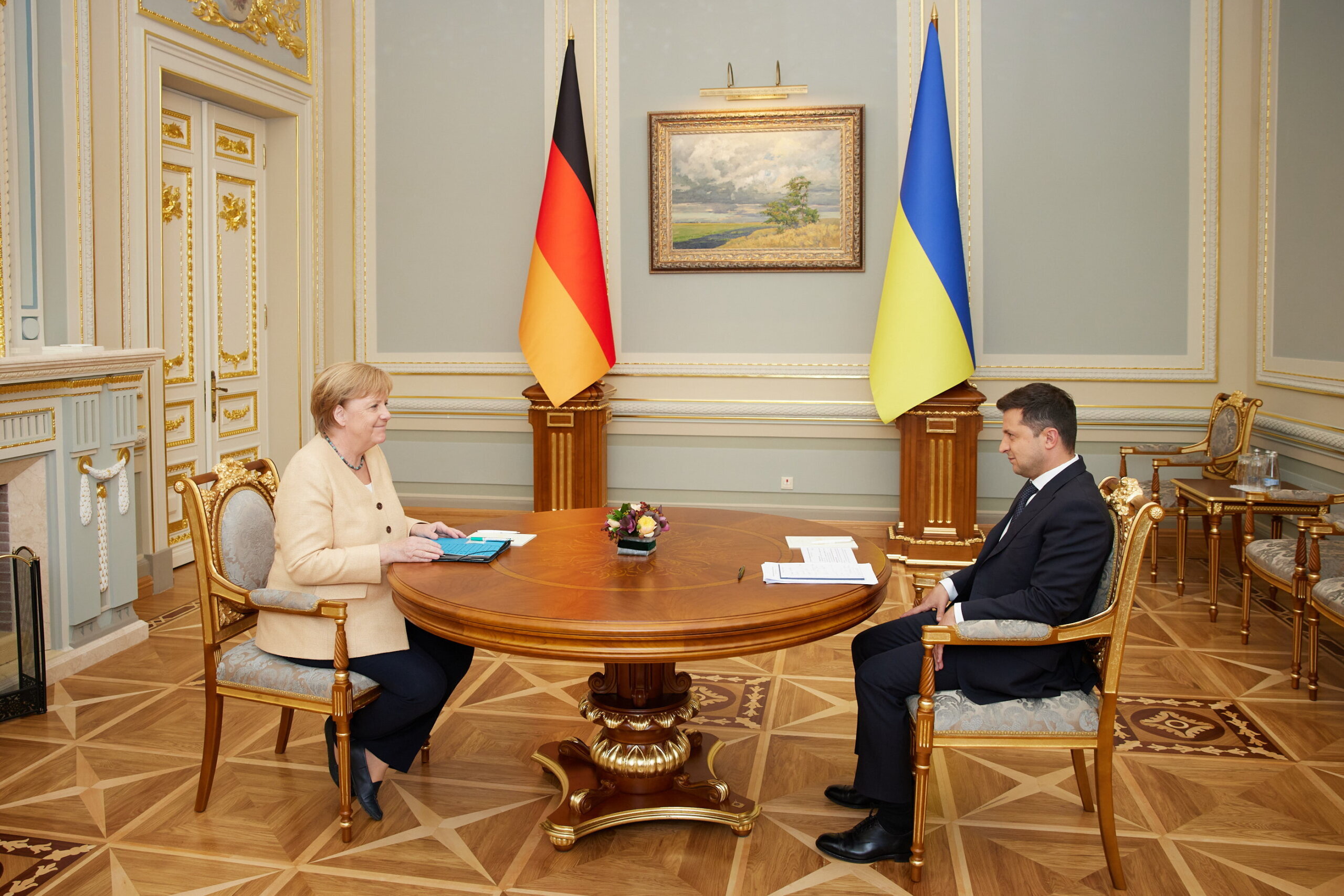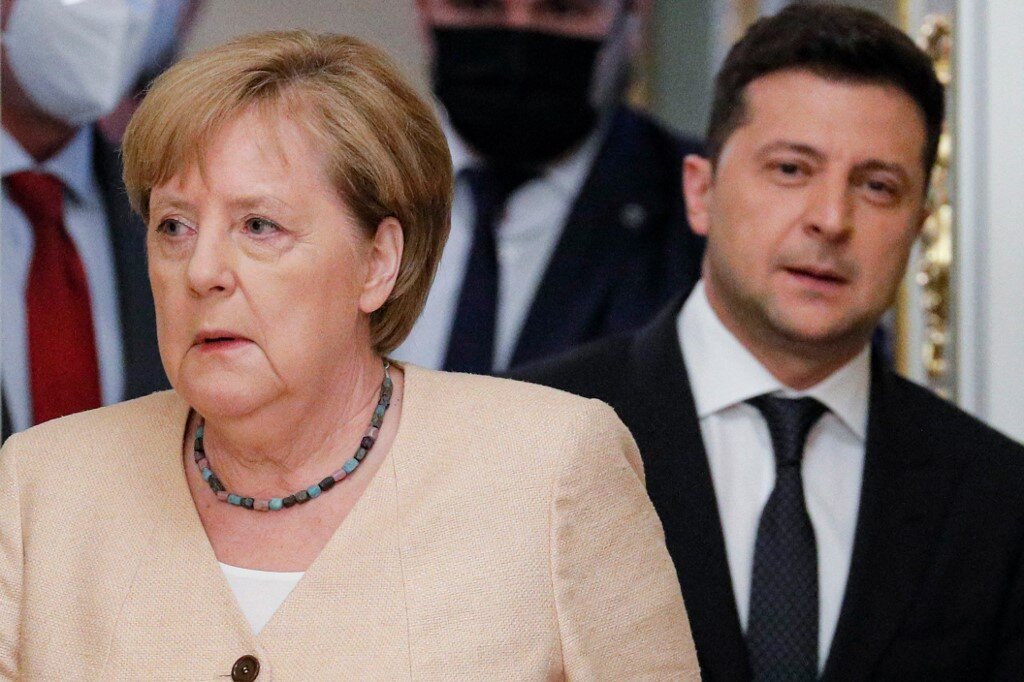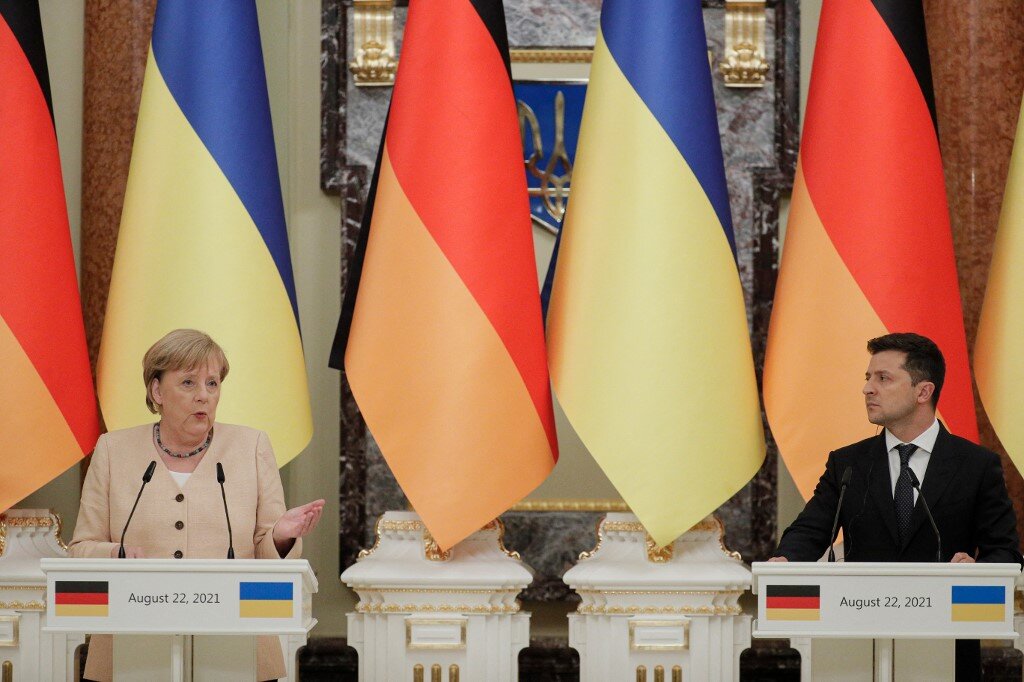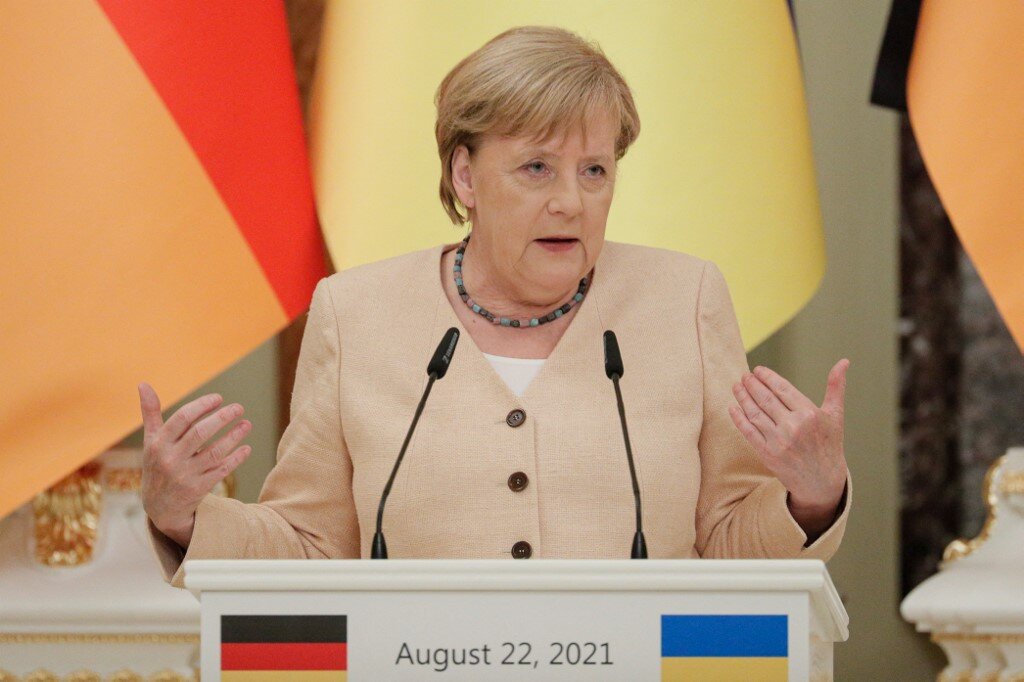German Chancellor Angela Merkel paid a farewell visit to Ukraine on Aug. 22 as she is preparing to step down as the chancellor in September after 16 years.
The visit took place at a tense moment in Ukrainian-German relations.
JOIN US ON TELEGRAM
Follow our coverage of the war on the @Kyivpost_official.
The Nord Stream 2, a Russia-to-Germany pipeline project that will bring gas to Europe bypassing Ukraine, is days away from completion. While Ukraine sees it as a major security threat to itself and Europe, Germany advocated for it.
- View the newest war in ukraine update in the Kyiv Post’s daily news stories that came out today.
- Find the latest Ukraine news published as of today.
In Kyiv, Merkel met with President Volodymyr Zelensky and gave lukewarm reassurances to Ukraine.
“We take Ukraine’s concerns about the Nord Stream 2 very seriously,” said Merkel during her joint press conference with Zelensky. “I spoke about it with President Vladimir Putin in Moscow. Germany will back introducing new European sanctions (against Russia) if Russia tries to use the Nord Stream 2 as a weapon.”
Read also: Merkel fails to hold Putin responsible for Navalny, Ukraine
Speaking after Merkel, Zelensky said that the Nord Stream 2 is nothing but a weapon.
“It is a weapon and it’s wrong to not notice it,” he said at the press conference. “Ukraine will never look at it from the economic perspective. It’s about politics and security only.”
Merkel said that Germany was already beginning talks with Russia about prolonging the existing gas transit agreement that sees Russia sending some of its gas to Europe through Ukraine until 2024.
“We want Ukraine to remain a gas transit country after 2024,” Merkel said.
Zelensky said that all the reassurances Ukraine has been getting remain general. And a perspective to achieve energy security by switching to green energy with Germany’s support is a distant future while the Nord Stream 2 is a current threat, he said.
“Among all countries, Ukraine will bear the heaviest risks when the Nord Stream 2 is launched,” Zelensky said. “The chancellor spoke to me about prolonging the gas transit agreement with Russia but so far it’s all been said in very general words.”
The prolongation of the agreement past 2024 will be discussed on Aug. 23 by the energy ministers of Ukraine, Germany, and U.S. who will meet at the sidelines of the Crimean Platform summit, according to Merkel and Zelensky.
“I want to understand what Ukraine will get when the transit agreement runs out in 2024, what guarantees we have and who gives them to us,” Zelensky said.
As Merkel reassured Ukraine that Germany keeps supporting its territorial integrity, her words were overshadowed by the context and the timing of her visit. On her farewell tour as the German chancellor, Merkel chose to visit Russia before Ukraine, coming to Moscow on Aug. 20. Her visit to Russia was announced when the visit to Kyiv had already been scheduled.
She also isn’t visiting the 30th Independence Day celebrations on Aug. 24, to which she was invited, or the Crimean Platform inaugural summit on Aug. 23, instead choosing to arrive a day before those events.
Moreover, Germany announced that its representative at the Crimean Platform summit will be replaced. Instead of Foreign Minister Heiko Maas, the country will be represented by Economy and Energy Minister Peter Altmaier.
During her press conference in Kyiv, Merkel tried to emphasize that the replacement doesn’t lower the level of Germany’s representation since both ministers are formally of the same rank. She said the foreign minister was unavailable due to the crisis in Afghanistan.
Confronted by a Ukrainian journalist’s question of whether her not participating in the Crimean Platform herself is an attempt to please Russia, Merkel simply said it’s not.
“The fact that our foreign minister isn’t coming to the Crimean Platform summit has nothing to do with our relationship with Russia,” Merkel said.
You can also highlight the text and press Ctrl + Enter


